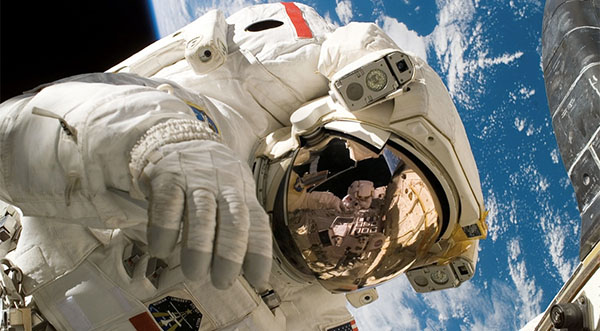
The vast majority of people have never been in space, so we cannot begin to imagine what the psychological impact is of living on the International Space Station or rocketing to the moon, far away from the surface of the Earth.
Such experiences must be overwhelming in ways that we cannot fathom. But if you take the time to think about what it would be like for astronauts in space, you may suspect that astronauts could be prone to turning to alcohol or drugs as a coping mechanism once they have landed back on Earth.
Indeed, many astronauts who have spent time in space have experienced depression after returning to Earth, and some have become addicted to alcohol or drugs.
Aldrin’s Addiction
The most famous astronaut to be open about their addiction is Buzz Aldrin, the second man to step foot on the moon during the historic Apollo 11 landing.
In interviews and in his memoirs, Aldrin has talked extensively about his battle with alcohol addiction. He has also said that addiction among astronauts who work for NASA is “real, prevalent, and serious.”
After the moon landing of 1969, Aldrin became addicted to alcohol to the extent that some days he would not get out of bed. His marriage soon fell apart. But in 1975, Aldrin checked into a rehabilitation center for 28 days.
He soon fell off the wagon after leaving, though, and it was not until he reached rock bottom in 1978 that Aldrin finally gave up the booze.
Many Astronauts Apparently Battle with Mental Health Issues and Addiction
Other astronauts who have become addicted to alcohol or drugs have not been in the public eye as much as Buzz Aldrin. But, it is widely known that many others have battled with mental health issues and addictions.
Indeed, some astronauts are also at a higher risk of substance abuse disorders due to the fact that they receive medical treatment for injuries sustained during spaceflight that turn out to be addictive.
For example, it is not uncommon for doctors to prescribe opioid medication for back pain, which is a common ailment among astronauts. In turn, some astronauts become addicted to opioids.
Studies at the International Space Station Could Help Specialists Understand Addiction Better
The connection between astronauts and addiction has not only to do with astronauts becoming at risk of developing alcohol or drug dependency. Astronauts at the International Space Station may actually be helping us to better understand addiction.
The environment of space may help addiction specialists to understand why and how certain individuals are at a higher risk of becoming addicts than others. After all, astronauts living on the ISS undergo a number of physical changes, such as muscle degeneration, bone loss, and low immunity, in addition to mental changes.
According to Asana Recovery, experiments have been carried out in which tissue samples are sent to the ISS and placed in special incubators for a period of two weeks before being returned to Earth, to help scientists better understand things like addiction.
New Treatment Strategies for Recovery
The studies that have taken place aboard the ISS may help scientists and medical professionals develop new treatment strategies for addiction recovery. In the meantime, various modern treatments are available for people – including astronauts – who have developed a dependency on alcohol or drugs.
For example, treatment centers offer a detoxification process under medical supervision along with a range of therapy services that are adapted to an individual’s specific needs. For instance, a recovery plan for someone battling binge drinking could look very different to a person who is addicted to opioids.
Speaking of binge drinking, many regular consumers of alcohol do not realize that they have a dependency problem. If you tend to drink a lot of alcohol in one sitting on a regular basis, take a look at binge drinking in more detail to discern whether you have a problem you need assistance with.
Ultimately, a treatment center can provide addicts with the support and guidance they need to increase their chances of a successful and sustainable recovery.
Other modern treatments that can assist in addiction recovery include:
- Behavioral addiction treatment.
- Cognitive-behavioral therapy.
- Family therapy.
- Holistic approaches, like yoga, mindfulness, and meditation.
- Medication-assisted treatment.
The Final Frontier
According to Star Trek, space is the final frontier. But to explore space with the motivation and positivity of Captain Kirk, we first need to better understand how spending time in space can affect astronauts’ mental health.
We can also use space stations to conduct experiments that could lead us to a better understanding of addiction and help us to come up with new treatment strategies for recovery.
The post Remarkable Connection Between Astronauts and Addiction – New Treatment Strategies for Recovery appeared first on Space Coast Daily.